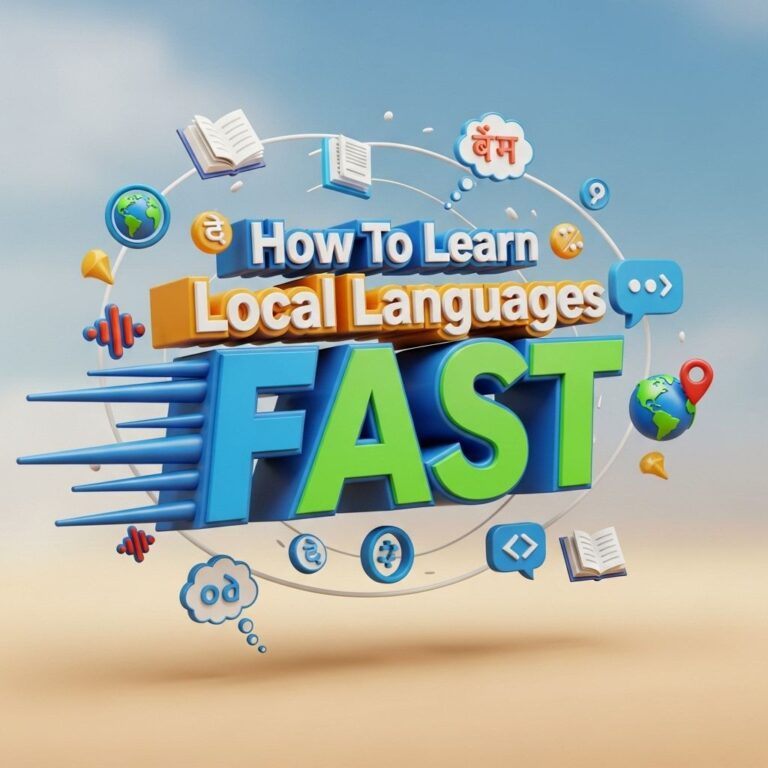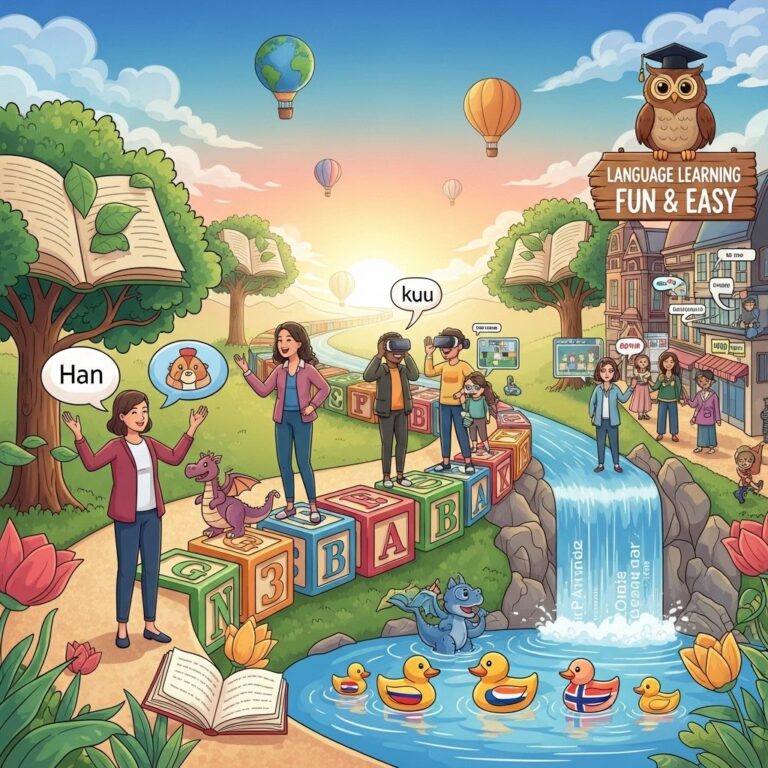In today’s interconnected world, mastering a new language can significantly enhance both personal and professional opportunities. With the advancement of technology, numerous tools have emerged that facilitate language learning in innovative ways. This article explores five must-have tools that can help you become proficient in a new language quickly.
Table of Contents
1. Language Learning Apps
Mobile applications have revolutionized the way we learn languages. Whether you’re a beginner or looking to polish your skills, these apps offer a range of features tailored to your learning style.
Popular Language Learning Apps
- Duolingo: This app gamifies the learning experience, making it fun and engaging. It offers bite-sized lessons that cover vocabulary, grammar, and pronunciation.
- Babbel: Focused on real-life conversations, Babbel provides structured courses that include grammar tips and cultural insights.
- Rosetta Stone: Known for its immersive approach, Rosetta Stone emphasizes learning through context and visual cues, which can enhance retention.
2. Online Language Exchange Platforms
Connecting with native speakers is one of the most effective ways to master a language. Online language exchange platforms facilitate conversations between learners and native speakers, providing authentic practice.
Top Language Exchange Platforms
| Platform | Features | Cost |
|---|---|---|
| italki | 1-on-1 tutoring and community learning | Free/Paid |
| Tandem | Text, voice, and video chat options | Free/Paid |
| HelloTalk | Text and voice exchange with a global community | Free/Paid |
3. Language Immersion Software
Immersing yourself in a language can accelerate your learning. Software tools that offer immersive experiences can help you think and communicate in your new language.
Effective Language Immersion Software
- FluentU: This platform uses real-world videos, such as music videos and movie trailers, to teach vocabulary and grammar in context.
- LingQ: Focused on reading and listening comprehension, LingQ allows users to interact with authentic texts and audio while tracking their progress.
- Yabla: Offering a wide range of videos with interactive subtitles, Yabla enhances listening skills and introduces you to different accents and dialects.
4. Digital Flashcards and Vocabulary Tools
Building a robust vocabulary is essential for language mastery. Digital flashcards and vocabulary tools can help you memorize and recall words more effectively.
Recommended Flashcard Tools
- Anki: A powerful flashcard app that uses spaced repetition, which is proven to enhance long-term memory retention.
- Quizlet: Allows users to create custom flashcards or use pre-made sets to study vocabulary in a fun, interactive manner.
- Cram: Offers a variety of study modes, including games and tests, to reinforce vocabulary learning.
5. Online Courses and Tutorials
Structured courses provide a comprehensive learning experience, often featuring expert instructors and a community of learners. Many platforms offer language courses that can cater to various learning needs.
Popular Online Course Providers
- Coursera: Features courses from top universities and institutions, covering various aspects of language learning.
- Udemy: Offers a wide range of language courses, often at discounted prices, taught by experienced instructors.
- Babbel Live: Provides live classes with experienced teachers, allowing for real-time interaction and personalized feedback.
Conclusion
Mastering a new language quickly is an attainable goal with the right tools and resources. The five tools discussed—language learning apps, online language exchange platforms, immersion software, vocabulary tools, and online courses—create a comprehensive learning ecosystem. By leveraging these technologies, you can accelerate your language learning journey and open up a world of opportunities.
FAQ
What are the best tools to learn a new language quickly?
Some of the best tools to learn a new language quickly include language learning apps like Duolingo, Babbel, Rosetta Stone, and Memrise, as well as online platforms like iTalki for conversation practice.
How can I use technology to improve my language skills?
You can use technology to improve your language skills by utilizing language exchange apps, interactive language learning websites, and online courses that provide structured lessons and practice opportunities.
Are there any free resources for language learning?
Yes, there are many free resources for language learning, such as Duolingo, BBC Languages, and language learning YouTube channels that offer valuable content and tutorials.
What is the fastest way to become fluent in a new language?
The fastest way to become fluent in a new language is through immersive experiences, regular practice with native speakers, and using language learning tools that focus on real-life conversation.
Can I learn a language just by using apps?
While language learning apps are a great starting point, it is recommended to combine them with speaking practice, reading, and listening to enhance your overall language proficiency.
How important is daily practice in language learning?
Daily practice is crucial in language learning as it helps reinforce vocabulary, grammar, and pronunciation, leading to faster mastery of the language.




